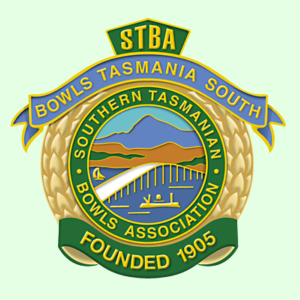
BTS Board Conflict of Interest Policy
Printable version: BTS Board Conflict Of Interest Policy – May 2022 (PDF)
| RELATED POLICIES:
BTS Board of Management Code of Conduct Policy RESPONSIBLE OFFICERS: President and Deputy President APPLICABLE TO: All members of the BTS board ASSOCIATION: BTS Board of Management APPLICABLE FORMS: N/A APPROVED: May 2022 |
1. Purpose
1.1 The purpose of this policy is to assist the Board of Management of Bowls Tasmania South (BTS) to effectively identify, disclose and manage any actual, potential or perceived conflicts of interest in order to protect the integrity of the Association and manage risk.
2. Objective
2.1 This policy aims to ensure that all members of the BTS Board of Management are aware of their obligations to disclose any conflicts of interest that they may have and to comply with this policy to ensure they effectively manage those conflicts of interest as representatives of the Association.
3. Scope
3.1 This policy applies to all members of the BTS Board of Management, either elected or appointed.
4. Definition of conflicts of interest
4.1 A conflict of interest occurs when one’s personal interests conflict with their responsibility to act in the best interests of the Association.
4.2 Personal interests include direct interests as well as those of family, friends, or other organisations a person may be involved with or have an interest in.
4.3 It also includes a conflict between a Board member’s duty to the Association and another duty that the Board member has to the bowls club to which they belong.
4.4 A conflict of interest may be actual, potential or perceived and may be financial or non-financial.
4.5 These situations present the risk that a person will make a decision based on, or affected by, these influences, rather than in the best interests of the Association and must be managed accordingly.
5. Policy
5.1 This policy has been developed because conflicts of interest commonly arise, and do not need to present a problem to the BTS Board if they are openly and effectively managed.
5.2 It is the policy of Bowls Tasmania South as well as a responsibility of its Board, that ethical, legal, financial or other conflicts of interest be avoided and that any such conflicts (where they do arise) do not conflict with the obligations to Bowls Tasmania South.
5.3 Board members are required to:
(a) avoid conflicts of interest where possible;
(b) identify and disclose any conflicts of interest;
(c) carefully manage any conflicts of interest; and
(d) follow this policy and respond to any breaches.
5.4 The Board of Management is responsible for:
(a) establishing a system for identifying, disclosing and managing conflicts of interest;
(b) monitoring compliance with this policy; and
(c) reviewing this policy regularly to ensure it is operating effectively.
5.5 The BTS President must ensure that all Board members are aware of this Policy and that they disclose any actual or perceived material conflicts of interests as required by this policy.
5.6 The Secretary will maintain a register of disclosed conflicts of interest.
6. Conflicted Board members
6.1 Once a conflict of interest has been appropriately disclosed, the Board (excluding the Board member disclosing and any other conflicted Board member) must decide whether or not the conflicted Board member should:
(a) vote on the matter (this is a minimum);
(b) participate in any debate; or
(c) be present in the room during the debate and the voting.
6.2 In exceptional circumstances, such as where a conflict is very significant or likely to prevent a Board member from regularly participating in discussions, it may be appropriate for the person conflicted to resign from the Board.
7. Actions to take when a conflict of interest is identified
7.1 If the Board has a reason to believe, or is informed that, a Board member has failed to comply with this policy, the Executive Committee will investigate the circumstances.
7.2 If it is found that a Board member has failed to disclose a conflict of interest, a breach of the BTS Board Code of Conduct will have occurred and action will be taken in accordance with that policy.
7.3 In deciding whether a breach has occurred, the Board will consider whether:
(a) the conflict needs to be avoided or simply documented;
(b) the conflict will realistically impair the disclosing person’s capacity to impartially participate in decision-making;
(c) there are alternative options to avoid the conflict;
(d) the Association’s objects and resources have been compromised; and
(e) there is a possibility of creating an appearance of improper conduct that might impair confidence in, or the reputation of, the Association.
7.4 The approval of any action requires the agreement of a majority of the Board (excluding any conflicted Board member/s) who are present and voting at the meeting. The action and result of the voting will be recorded in the minutes of the meeting.
7.5 To facilitate the effective functioning of the Board of Management the quorum for the discussion in question will be adjusted to half the total membership of the Board (excluding the Board member/s absenting themselves due to a conflict of interest) plus one.
7.6 Once discussion has concluded, the excluded member/s will be eligible to re-join the meeting and the normal quorum will apply.
